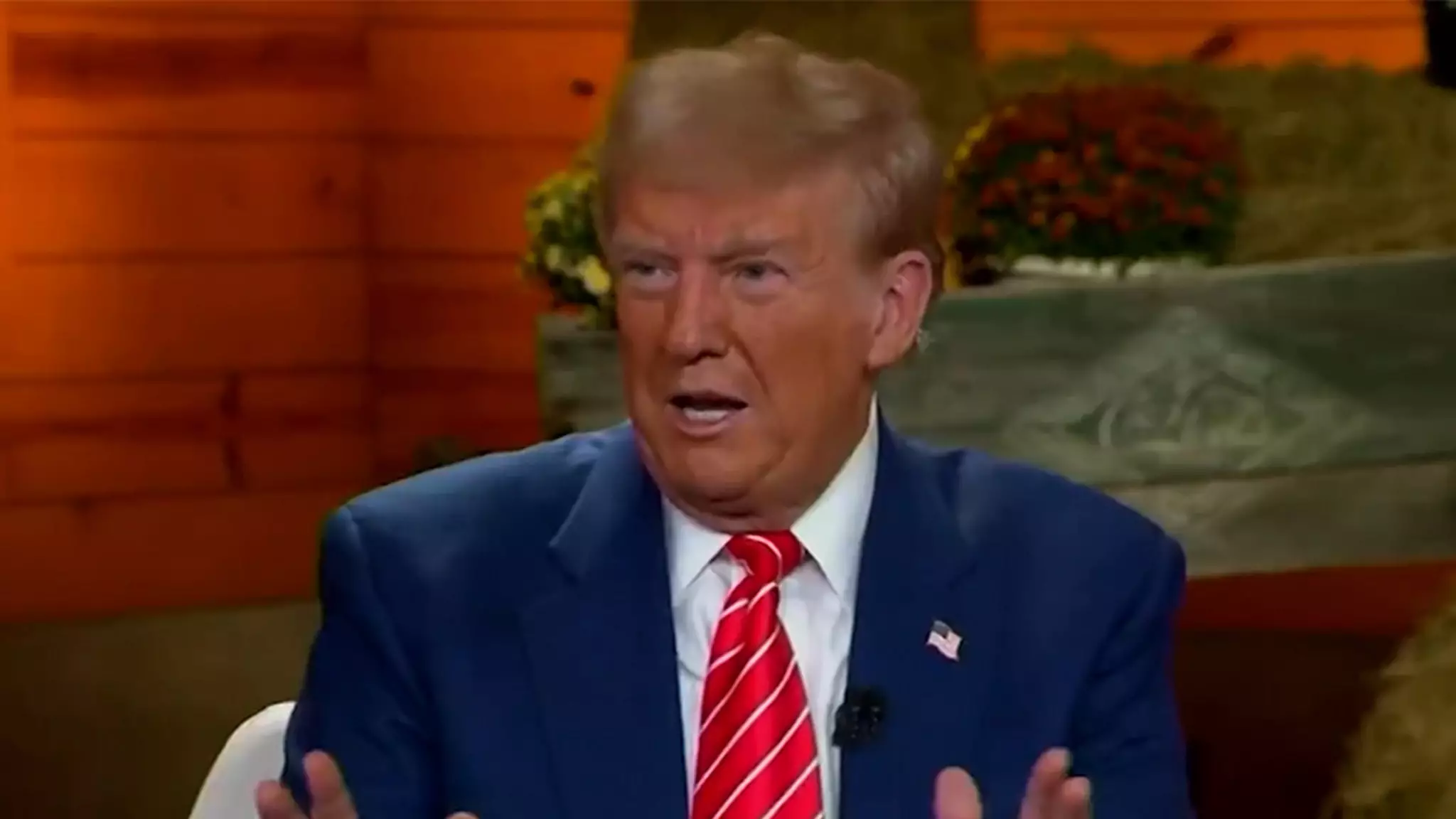The former President Donald Trump’s recent remarks during a Fox News town hall have ignited debate regarding his approach to women’s health issues, particularly in vitro fertilization (IVF). Speaking in Georgia to an audience predominantly composed of women, Trump described his relationship with Senator Katie Britt from Alabama in a way that could be construed as both flattering and problematic, as he made an effort to emphasize her appearance before her political accomplishments.
Trump’s praise for Britt as a “fantastically attractive” senator raises questions about his sincerity and the implications of his comments for female voters. While his intention might have been to connect with the audience, such remarks could be interpreted as reducing a woman’s value to her physical appearance rather than her qualifications or contributions. In a political climate that increasingly demands respect and acknowledgment of women’s capabilities, this framing could alienate potential supporters rather than attract them. The choice of words suggests a continued pattern of objectifying women’s looks in spheres where their professional achievements should be the focal point.
The discourse around IVF during the town hall reflects a significant shift in Trump’s rhetoric concerning women’s healthcare. He boldly labeled himself as “the father of IVF”; however, this declaration requires scrutiny. Trump’s position appeared to be more reactive than proactive, focusing on the implications of state rulings regarding reproductive health instead of offering comprehensive solutions or policies. This reactive nature was evident when a participant brought up the implications of the Alabama Supreme Court’s ruling that embryos created via IVF are protected under the law, a ruling that has led to operational challenges for IVF clinics in the state. By asserting that his administration would be supportive of IVF, Trump seems to be aligning himself with the interests of a segment of the electorate, but his prior track record and the sincerity of his commitment to women’s health are valid points for consideration.
The juxtaposition of his comments on IVF and his casual remarks about Britt’s appearance paints a complicated picture of Trump’s efforts to court female voters. Although he stressed his approval of IVF, the attention to Britt’s looks in such a critical discussion could detract from the substantive nature of his proposal. In contemporary politics, the vocabulary used regarding women’s rights issues can heavily influence public perception and voter alignment. Many observers took to social media to critique the nature of his comments, suggesting that such distractions may undermine a genuine dialogue aimed at addressing women’s healthcare needs.
Ultimately, while Trump seems to be positioning himself as an ally of IVF and women’s health, the context in which he made these assertions raises questions about whether he truly understands or values the complexities of reproductive rights. His past actions and current remarks highlight a continuous challenge in establishing a political narrative that resonates with female constituents, all while avoiding superficial characterizations that can distort meaningful discourse. There is a delicate balance between appealing to demographics and genuinely advocating for their needs, and navigating this terrain will be imperative for Trump’s future political endeavors.

